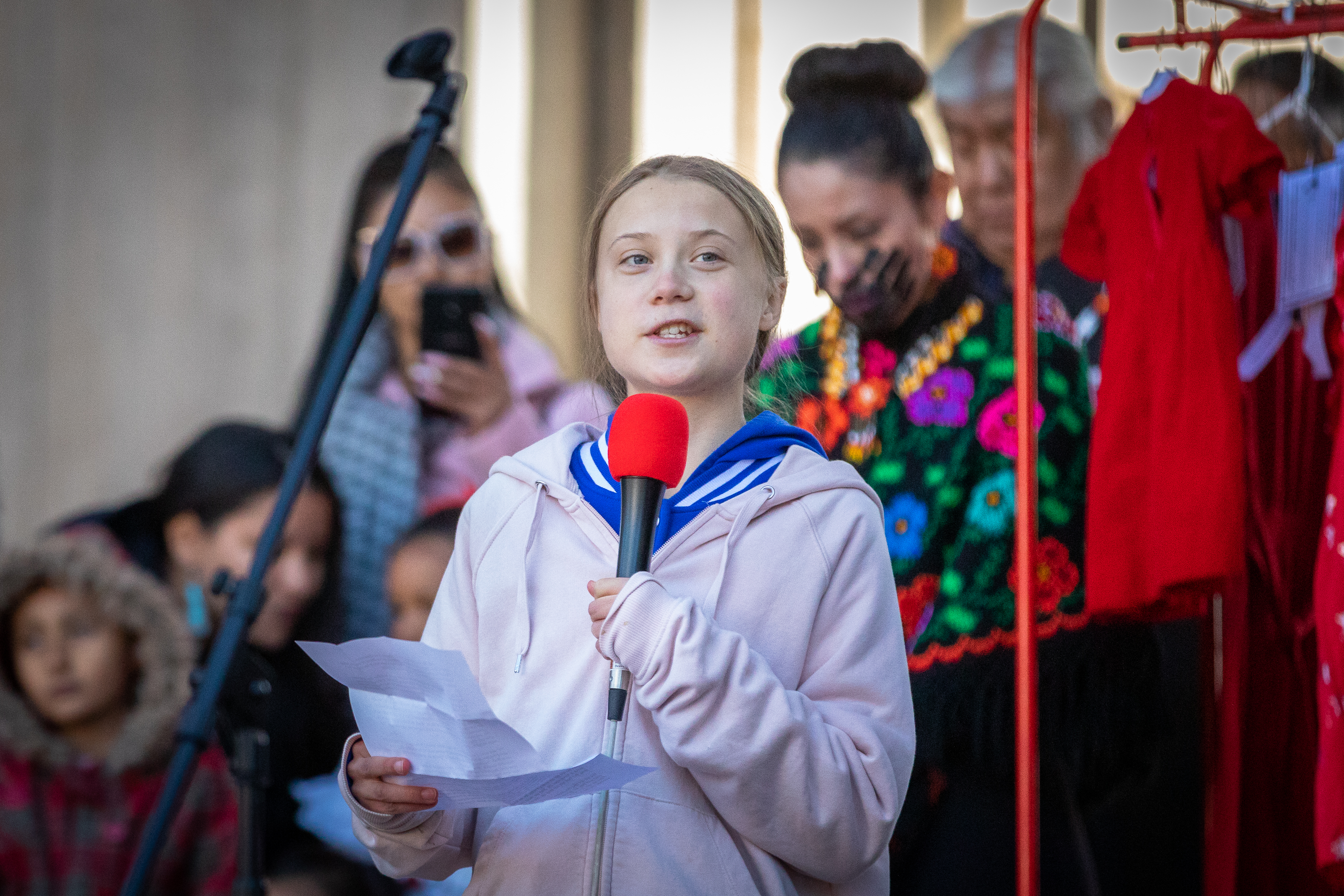STEM
Climate Change
Sustainability
I suppose that it is not surprising that research on the effectiveness of climate activist Greta Thunberg has received scientific attention. However, I was.
In an essay in Nautilus, Scott Koenig describes research from the Media Neuroscience Lab (UCal, Santa Barbara) conducted by graduate student Frederic Hopp and the lab's director, Rene Weber on the power of Greta Thunberg rhetoric. It uses a complex tool--the Moral Narrative Analyzer (MoNA)--developed by the lab. Think of it as a way of studying "innate moral framing," or more specifically how Thunberg frames her message.
The Hopp-Weber analysis was based on Thunberg's powerful statement to the United Nations.
Rene Weber says that human moral systems consist of five categories. These are not of equal priority among people.
--Care vs. Harm
--Fairness vs. Cheating
--Loyalty vs. Betrayal
--Authority vs. Subversion
--Purity vs. Desecration
Harrison Tasoff in the UC-SB Current summarizes the findings. "In line with Thunberg's strong appeal to the harm and unfairness of the current climate crisis, MoNA identified care/harm and fairness/cheating as the most dominant moral frames in her speech." Tasoff continues. "'Research has shown that liberals are especially sensitive to violations of care and fairness,'" Weber explained, '"whereas conservative individuals tend to place greater emphasis on violations of loyalty, authority, sanctity."
This is not particularly surprising but Scott Koenig dug deeper. Hopp and Weber were primarily interested in whether MoNA was a reliable and valid research tool "to extract moral framing from "real-world text." Koenig writes, "though (care and fairness) are more prominent for liberals, those two moral foundations appeal strongly to people on both sides of the aisle." Koenig cites research by Irina Vartanova and colleagues at the Institute of Future Studies who has found that these arguments are universal, "the arguments that are accepted by everyone."

According to Koenig,Vartanova's group notes that some arguments have a "harm-fairness connection advantage." This means that such arguments are "rooted more deeply in care and fairness than (the) counterarguments." Koenig continues, "Varranova and her colleagues seems to have shown how exposure to the right arguments can predictably change not just individual opinons, but the belief systems of an entire society. As they put it, '"Our model illustrates that psychology can create culture.'"
Regardless, "one way or another," Koenig notes, "the needle is moving. ... But as the dangers of the climate crisis become less and less hypothetical, activists may want to use all the rhetorical tools they can get."
Thunberg relies on arguments based on sound science that are made even more forceful when she uses moral language. It is a powerful combination. She also notes the importance of personal actions AND policy. "Listen to the scientists." Then act soon not later.
Thunberg relies on arguments based on sound science that are made even more forceful when she uses moral language. It is a powerful combination. She also notes the importance of personal actions AND policy. "Listen to the scientists." Then act soon not later.

 CGEE Student Voice
CGEE Student Voice
No comments:
Post a Comment